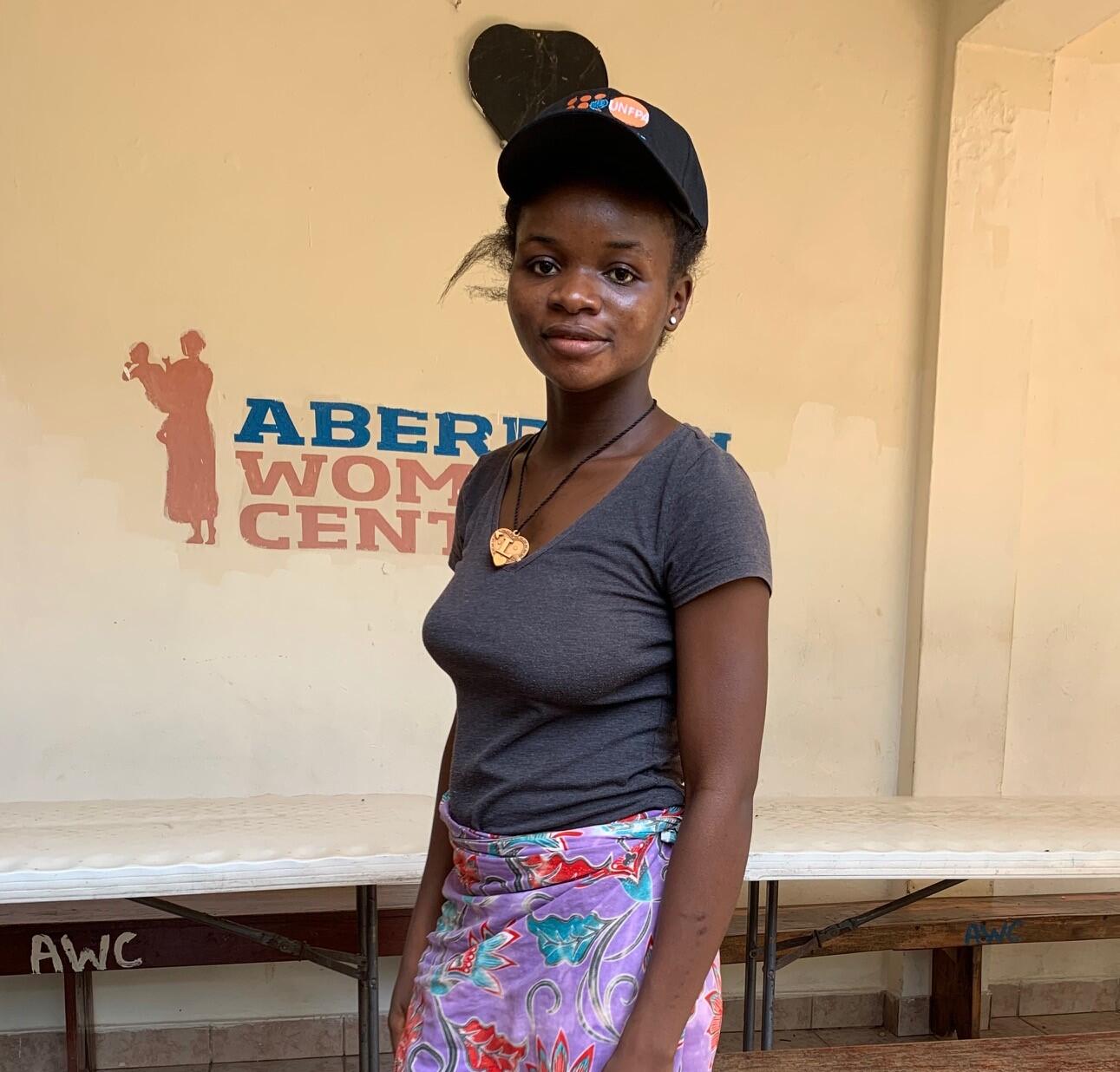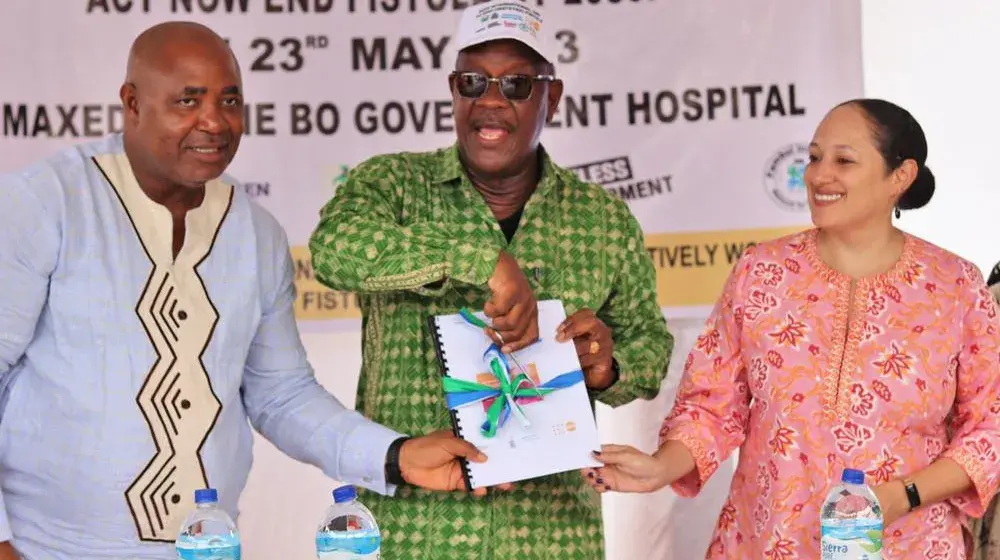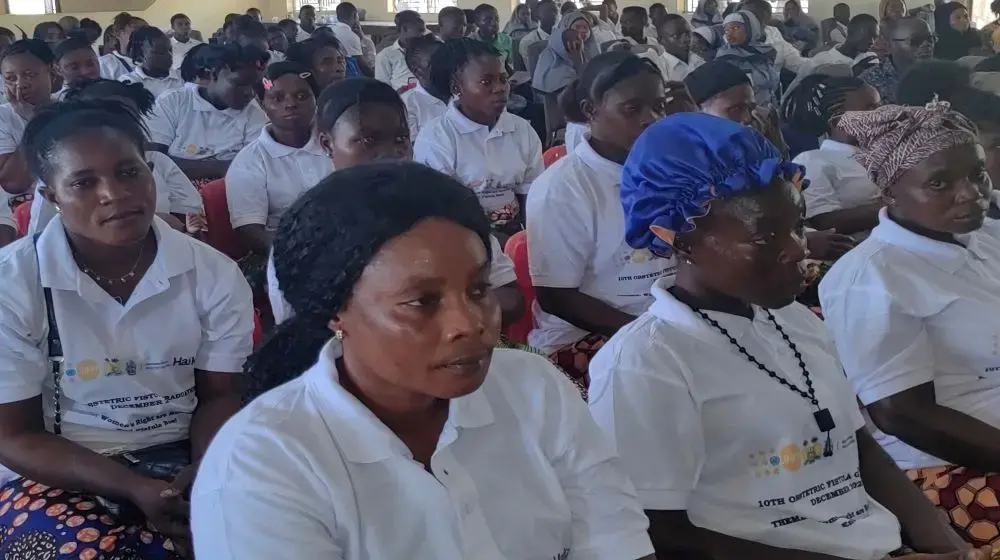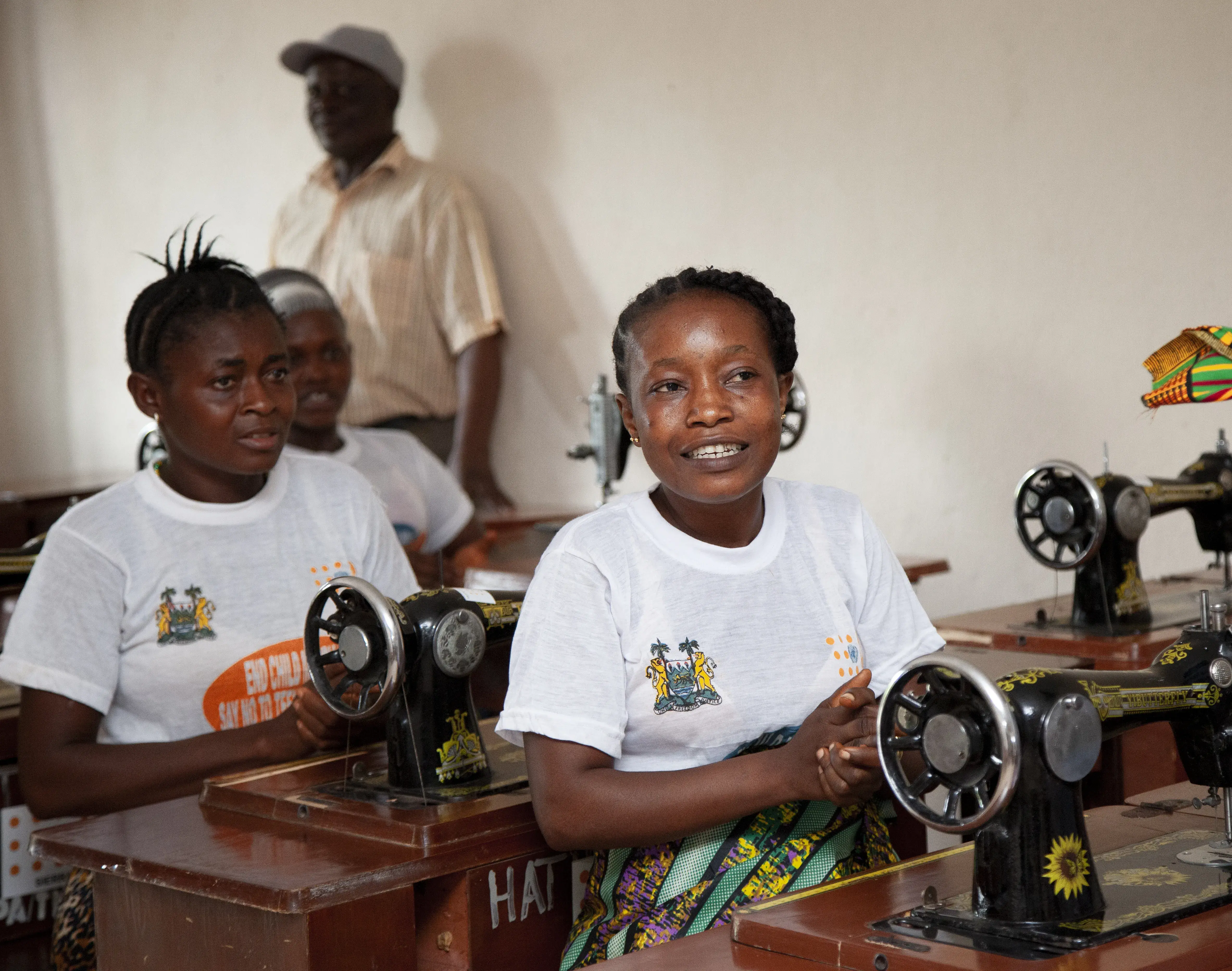FREETOWN, SIerra Leone, 3 June 2019 - “I was eleven years old when my father said that I must get married because we had no money for education or clothes”, recalled 19-year-old Finah Sesay. Despite her wish to stay at school, Finah, from Koinadugu district in Sierra Leone, was forced to marry a man twice her age, and by 15 years old she was pregnant.
“There was no health centre or medical care in my village, only a traditional birth attendant”, explained Finah. “I was in labour for three days but the baby was too big and the wrong way round. I was taken by motorbike to the government hospital in Kabala town but the baby had already died because the labour was too long.”
Unfortunately, due to the length of her labour, and because of the lack of medical intervention, Finah returned to her village with obstetric fistula. One of the most serious injuries of childbearing is obstetric fistula, a tear in the birth canal caused by prolonged, obstructed labour in the absence of timely and adequate medical care.
For Finah, she had become incontinent and was unable to control her urine.
Many women and girls who suffer from obstetric fistula are often ostracized from daily community life and abandoned by their husbands and families. When they are isolated, socially and emotionally, it can be difficult for them to maintain sources of income, thus deepening their poverty and magnifying their suffering. However, obstetric fistula is preventable and, in most cases, can be repaired surgically.
“My husband said he did not love me anymore and because of my condition and the loss of the baby, he would not let me back into the house”, said Finah. “I went to live with a relative, and for three years I was not eating or drinking properly.”
Treating fistula
When the Aberdeen Women’s Centre screening team visited the hospital in Kabala early 2019, one of the nurses, who knew of Finah’s situation, persuaded her to travel to Freetown to the Centre for treatment. With funding from UNFPA, the United Nations sexual and reproductive health agency, Aberdeen Women’s Centre provides free fistula surgery and post-operative care to women and girls with obstetric fistula from all 16 districts of Sierra Leone.
UNFPA commenced support for fistula management in the Centre in 2011 and since then, there have been 1327 successful surgical repairs, 6338 deliveries and 20,756 women and girls who have accessed family planning services. The resident fistula surgeon, who has carried out 100 surgeries in the last ten months, is also partially funded by UNFPA.
Together with the non-governmental organisation, Haikal, UNFPA has helped with the rehabilitation and reintegration of 270 survivors in the past five years. This includes providing housing and sustenance, psychosocial support, livelihood skills training and start-up capital to empower women to have a sustainable source of income.
UNFPA also supports the Aberdeen Women’s Centre in providing training in self-esteem, family planning and academic guidance. As Haja Aminata Kamara, one of the guidance counsellors at the Centre said, “We encourage ‘family planning banking’, [spacing children] to ensure you can give them the best care possible, and at the optimum time in a woman’s life”. Former clients who do become pregnant are welcomed back to the Centre, since further deliveries must be done by cesarean section.
“I thought my life was over”, said Finah. “But now, after my successful operation, I feel much happier, more confident and empowered. I want to continue with my education, stay in Freetown and work in a bank.”

Finah Sesay, on the right, at the “Gladi Gladi Ceremony” on International Day to End Obstetric Fistula - @UNFPA/2019/Karen Davies
Fistula survivors as advocates
According to Alie Kamara, the Centre’s fistula programme officer, survivors need more than simply health care, they also need emotional support. The Centre encourages former clients to go back to their villages and give hope to those who are suffering from the condition, and convince them to come to Aberdeen Women’s Centre for surgery. Finah wants her story to be told and is determined to go back to her district as an ambassador for fistula repair.
As Natalia Kanem, UNFPA Executive Director, said in her statement on the International Day to End Obstetric Fistula, “The fact that the poorest, most marginalized women around the world still suffer from a condition that is preventable and treatable is a grave injustice. Fistula is a violation of women’s rights, and it must end now!”
****
For more information, please contact:
Angelique Reid, UNFPA Sierra Leone, Communications Specialist
Tel: +232 78340044 - Email: areid@unfpa.org





